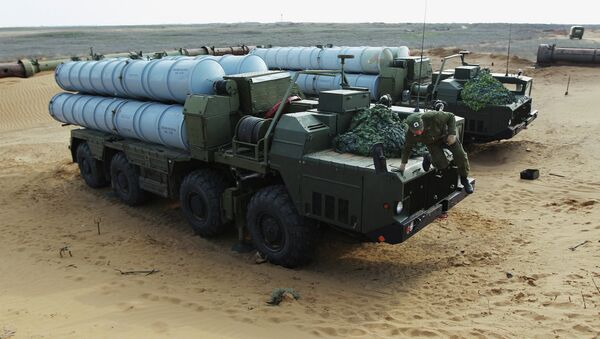MOSCOW, August 11 (RIA Novosti) – Russia’s anti-aircraft S-300 weapons systems, intended for export to Syria before sanctions were imposed, will be destroyed, the director for the Russian Federal Service for Military-Technical Cooperation said Monday.
“The S-300 complexes meant for Syria will be destroyed. This decision has been made on the level of the country’s political leadership,” Konstantin Biryulin said.
Asked if the complexes could be sold to a different country, Biryulin said that it was possible, “but very unlikely.”
Russia is the world’s second-largest weapons exporter after the United States. In 2013, Russia exported weapons valued at about $15.7 billion and another $2 billion between January and March 2014.
Altogether, as of March 2014, Russia’s weapons export orders portfolio exceeded $47 billion. Despite sanctions imposed by some Western countries, Russia’s leadership claims the country’s military-industrial complex will not be impacted and will only grow as a result.
The European Union, the United States and its allies since March have compiled several sanctions lists against Russian companies, banks and politicians, freezing their bank accounts, barring them from entry and have refused to buy Russian goods. The move has been linked to the ongoing conflict in Ukraine.
In a more recent development, in July, Washington introduced a so-called Sectoral Sanctions Identification List that specifically targeted the Russian economy’s most sensitive sectors, such as the defense, energy and banking sectors. The European Union soon followed the United States’ lead, imposing third-stage economic penalties that limited Russian state-owned banks' access to EU capital markets, outlawed arms trade with Moscow, established an export ban for dual-use goods for military end-users and curtailed Russian access to sensitive technologies, particularly in the oil sector.
Moscow stressed that Russia was never involved in the Ukrainian conflict and has repeatedly called the measures counterproductive, saying the sanctions could have a boomerang effect on Western economies.




